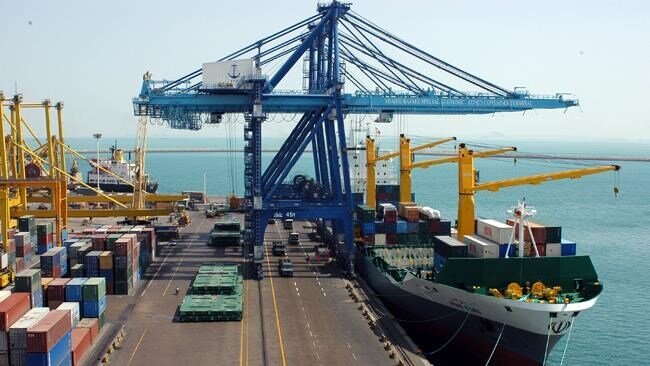‘Improving infrastructure, prerequisite for boosting trade with neighbors’

TEHRAN – Head of Iran-Russia Joint Chamber of Commerce has said improving the country’s infrastructure is a prerequisite for developing trade relations with the neighboring countries, IRNA reported.
Hadi Tizhoush Taban noted that trade with neighboring countries shortens the distance for transporting goods and reduces the time and costs of trade.
All around the world, most exchanges are done with neighboring countries in order to facilitate trade, he added.
Stating that Iran is no exception to the world, Tizhoush Taban stressed: “Neighbors know each other's capabilities and needs and can take steps to exchange and barter commodities.”
The official stressed that careful planning of shipping and aviation programs and reducing the issuance of directives and trade regulations are among the factors that can facilitate exchanges and help improve infrastructure.
“Neighboring countries that are members of economic unions have a very high capacity for exports, and Iran can meet many of the needs of these countries, but to achieve this important goal, we need commitment, foresight, and updating decisions,” the official said.
Iran shares borders with fifteen countries, namely the United Arab Emirates, Iraq, Turkey, Afghanistan, Pakistan, Russia, Oman, Azerbaijan, Turkmenistan, Kuwait, Qatar, Kazakhstan, Armenia, Bahrain, and Saudi Arabia whose total value of annual imports exceed $1000 billion.
Increasing non-oil exports to the neighboring countries is one of the major plans that the Iranian government has been pursuing in recent years.
Last May, the head of Iran’s Trade Promotion Organization (TPO) said the country is capable of doubling non-oil exports to its neighbors in two years.
Hamid Zadboum said that considering the future capacities, the TPO has planned to increase non-oil exports to the neighboring countries to about $100 billion in a two-year time span, in a way that Iran’s share of the regional markets will significantly go up.
The official has previously said: “Pakistan and Turkey have the highest capacity to import Iranian goods, which is good news for Iranian businessmen and exporters.”
Pointing to the Persian Gulf states as good markets for some Iranian-made commodities, Zadboum said that large markets such as Russia and China should also be considered by exporters.
Zadboum also said that a surge in exports requires a surge in production, and it means that the quality of Iranian products should be elevated in a way that besides meeting the domestic needs they can meet the target markets’ requirements.
The current Iranian calendar year (began on March 21) is named the year of “Production: Support and Elimination of Obstacles” by the Leader of the Islamic Revolution Ayatollah Seyed Ali Khamenei.
It should be considered that the trend of strengthening domestic production has been started in Iran a couple of years ago, as the country is determined to nullify the U.S. sanction on its economy by boosting production to reach more and more self-reliance.
EF/MA
